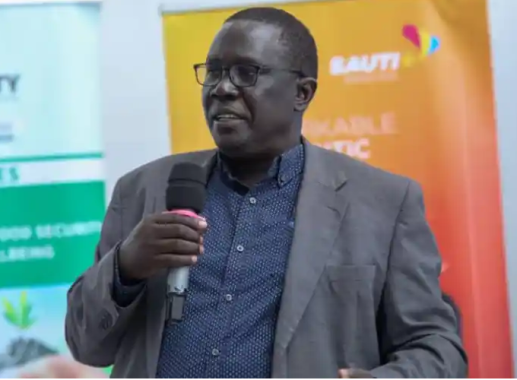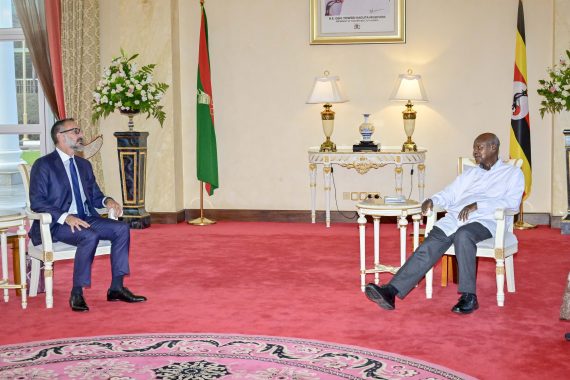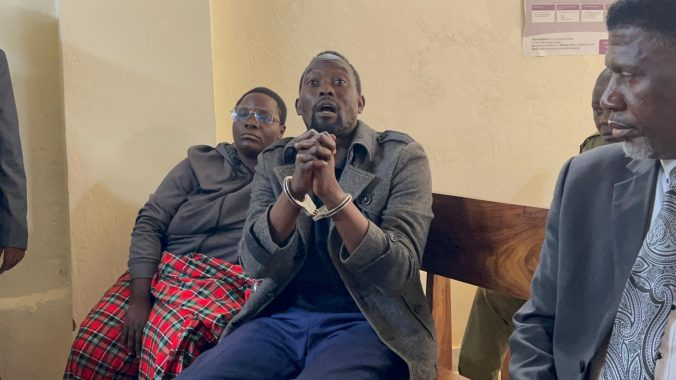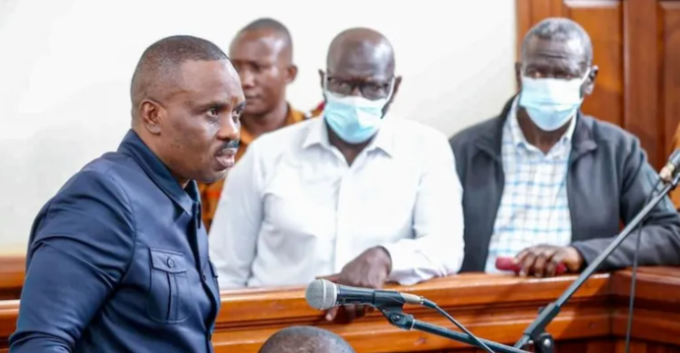The Climate Change Action East Africa (CCAEA) partnered with the International University of East Africa (IUEA) to host the 1st ever climate change and food security symposium and expo.
At the 3-day event, climate change and food security stakeholders openly discussed the impact of climate change, food security issues and food systems with a focus on strategies to safeguard communities in Uganda, the East Africa region from hunger and the world as a global village facing the same challenges.
The symposium theme: “Linking Climate Change To Food Security, Nutrition And Wellbeing” was unpacked by CCAEA and partners who presented papers covering; Climate change perspectives in Uganda, Effects of plastic bottles on climate change, Post-harvest losses and its impact on food security, Food security and architectures, the Gender difference in adoption of Agriculture-technology in Uganda and Leveraging digital platforms to improve agricultural production among others.
The symposium panel moderated by media personality Mildred Tuhaise was comprised of Dr Peter Milton Rukundo – FAO, Mr Alex Bambona – Ministry of Agriculture, Animal Industry and Fisheries, Mr David Kabanda – Center for Food, Mr. Henry Kimera – CONSENT and Mr Grace Bwengye – National Planning Authority who discussed food systems’ correlation to food security and climate change. Key issues discussed were; Management of afflatoxins is one of the major problems in food security highlighted at the event. All natural foods in Uganda come from biodiversity and the best way to ensure good quality and natural healthy foods is to conserve biodiversity and the environment at large.
The issue of food production and management was discussed at length in the event and it was noted that although Women and Youth play an important role in ensuring food security, they are culturally not recognized to Own Land.
The seasoned panelists recommended that government should enact laws protecting women and youth in land succession.
“Agricultural production in Uganda has evolved from the hand hoe to the use of oxen and later, the use of diesel-generated tractors. Oxen produce a lot of methane gasses while tractors produce a lot of carbon dioxide which is among the greenhouse gasses causing climate change. Uganda indeed has very good policies and laws on the environment that would help combat the current rate of environmental degradation. However, the enforcement of these policies and laws is chronically lacking. We, therefore, call for more synergy between the central and local governments in implementing food security policies and strategies to enforce these laws and policies at all levels (National, District and Lower Local Governments levels) and ensure that they are fully empowered,” cited Mr David Kabanda – Center for Food.
The panelists highlighted the need to strengthen the Uganda National Bureau of Standards (UNBS) to ensure food standards are met at all times and forth with District and Local Governments to enforce Ordinances and Bylaws that address post-harvest handling and food securities.
As firm believers in innovation and offering transformational experience for our students and stakeholders, we are delighted to host the first-ever Climate Change and Food Security symposium and expo and introduce to the participants our ESUS Platform; an online platform where farmers will access quality seeds, access climate updates, hire electric tractors and also track their produce.
The symposium has provided an arena for open discussion and knowledge sharing on the aspects of climate change, and food security among the wide range of participants from the Private sector, Academia, Development Partners, Institutions, Agricultural Sector Energy Sector and Climate Change actors and Environment promoters, Government and Civil Society Organizations.,” said Prof. Emeka Akaezuwa, Vice Chancellor, IUEA.
At the event, CCAEA also launched and encouraged the participants to uptake the One Acre Model that addresses livelihood and nutrition issues in the country.
Speaking at the event, Dr Tom Okia Okurut, Executive Director, CCAEA said, “We are on a mission to create an inclusive hunger-free East Africa region by the year 2050 through appropriate mitigation measures on climate change in the areas of food and nutrition security in East Africa. Uganda and East Africa have been experiencing hunger due to acute food shortages.
As CCAEA, we consider the aspect of food security in the East Africa region of the uttermost concern that climate change can dis-equilibrate the entire EAC region.
“Food insecurity linkages to climate change don’t emerge prominently; government planning for climate change impact interventions focuses on directly impacted aspects. Therefore there is a need to; increase climate change resilience and food security awareness in East Africa, address the risks associated with climate change on food systems and natural hazards, promote the application of early warning systems to reduce the humanitarian and extreme impacts of climate change on society, increase the adequacy and effectiveness of adaptation and resilience actions, including the extent to which they advance food crisis insecurity in the region, provide a platform for climate-smart technologies exposure and engagement and to facilitate smallholder farmers to showcase their products and share their innovations in response to the challenges impacting farmers,” added Dr Tom Okia Okurut, Executive Director of Climate Change Action East Africa.
To this, he says that “We have therefore decided to hold the Food Security Symposia and Expos annually in the capitals of the EAC Partner States as the most imperative way of promoting awareness of climate change impacts for consequential energization of countries to plan & budget for climate change impact and as well implement their national commitments.”
Speaking at the closing ceremony, the guest of honour, Hon Rebecca Alitwala Kadaga: 1st Deputy Prime Minister and Minister for East Africa Community Affairs acknowledged the timeliness of the Climate Change and Food Security symposium and expo.
“The East Africa Food Security Symposium and Expo with the theme: Linking Climate Change to Food Security and Human Wellbeing is the first but not the last in the region. It is a privilege for the organisers and participants to learn from the symposium and event. I pledge to interest the cabinet to see how the government can support the innovations and actors involved so that we all contribute to a hungry-free Uganda. I commend Climate Change Action East Africa on the one-acre outcome project model and IUEA on the research innovations – the electric tractor and electric motorcycle.”
The honourable minister commended CCAEA for the insightful and well-informed papers that demonstrated a high level of expertise in climate change and food security. Furthermore, she thanked all partners who partnered with CCAEA and IUEA to organize the event specifically World Food Programme, Caritas Uganda, KCCA, Food and Agriculture Organization, Oxfam, Uganda Insurance regulatory organisation, CAN- Uganda among others.

















